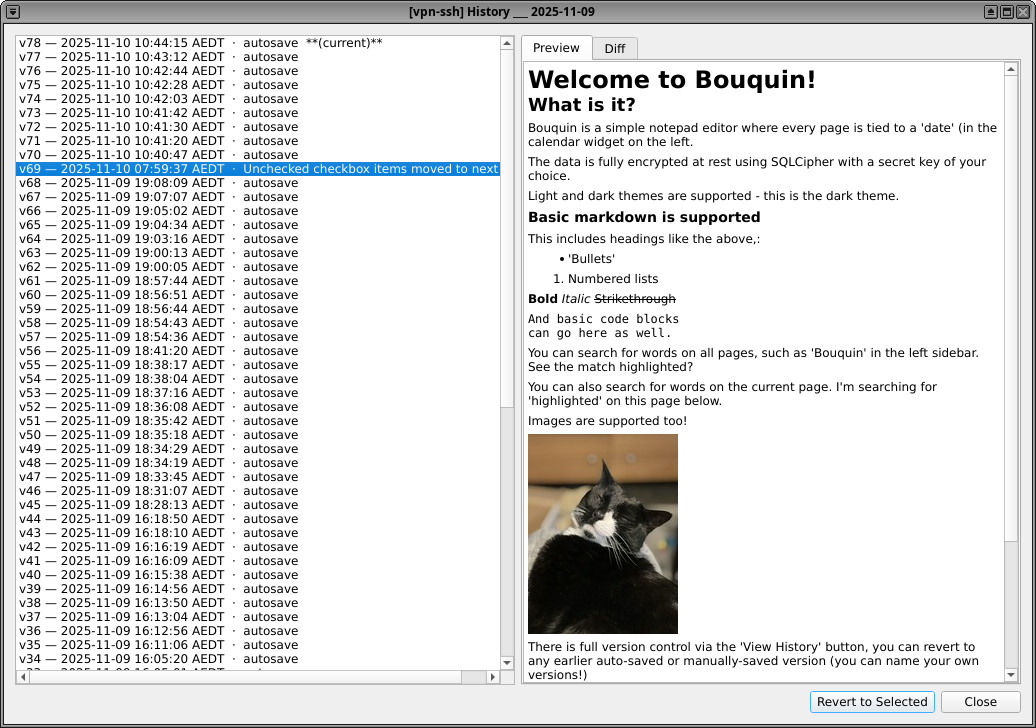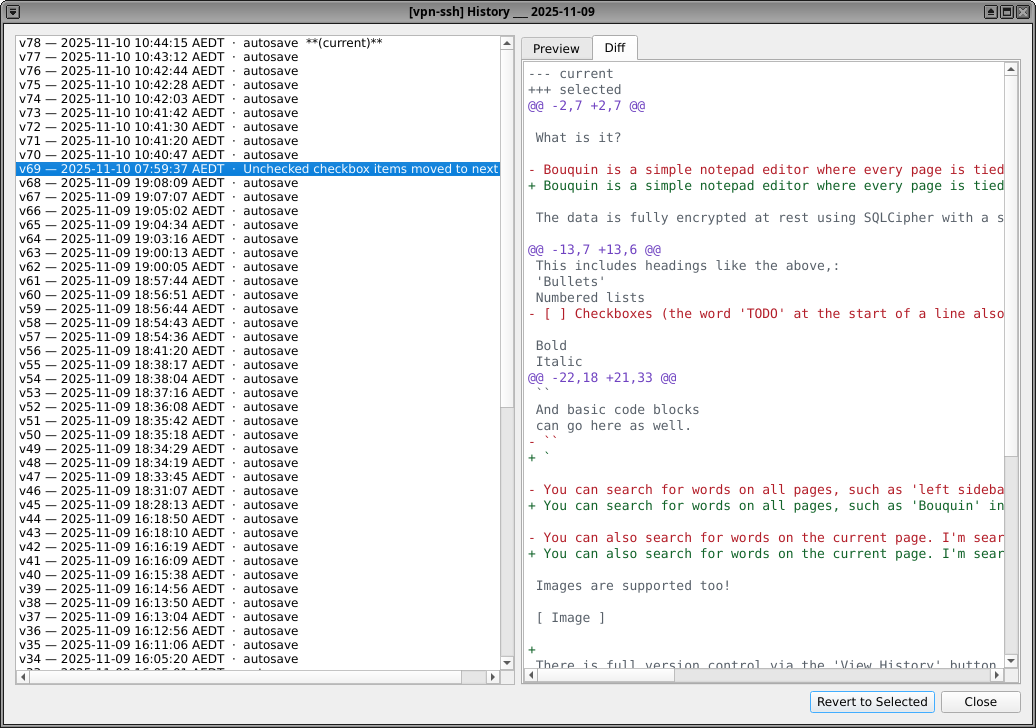Bouquin is a simple, opinionated notebook application written in Python, PyQt and SQLCipher.
https://pypi.org/project/bouquin/
| .forgejo/workflows | ||
| bouquin | ||
| screenshots | ||
| tests | ||
| .gitignore | ||
| CHANGELOG.md | ||
| LICENSE | ||
| poetry.lock | ||
| pyproject.toml | ||
| README.md | ||
| release.sh | ||
| tests.sh | ||
| vulture_ignorelist.py | ||
Bouquin
Introduction
Bouquin ("Book-ahn") is a simple, opinionated notebook application written in Python, PyQt and SQLCipher.
It uses SQLCipher bindings as a drop-in replacement for SQLite3. This means that the underlying database for the notebook is encrypted at rest.
To increase security, the SQLCipher key is requested when the app is opened, and is not written to disk unless the user configures it to be in the settings.
There is deliberately no network connectivity or syncing intended, other than the option to send a bug report from within the app.
Screenshots
General view
History panes
Tag relationship visualiser
Features
- Data is encrypted at rest
- Encryption key is prompted for and never stored, unless user chooses to via Settings
- Every 'page' is linked to the calendar day
- All changes are version controlled, with ability to view/diff versions and revert
- Text is Markdown with basic styling
- Tabs are supported - right-click on a date from the calendar to open it in a new tab.
- Images are supported
- Search all pages, or find text on page (Ctrl+F)
- Add tags to pages, find pages by tag in the Tag Browser, and customise tag names and colours
- Automatic periodic saving (or explicitly save)
- Transparent integrity checking of the database when it opens
- Automatic locking of the app after a period of inactivity (default 15 min)
- Rekey the database (change the password)
- Export the database to json, html, csv, markdown or .sql (for sqlite3)
- Backup the database to encrypted SQLCipher format (which can then be loaded back in to a Bouquin)
- Dark and light themes
- Automatically generate checkboxes when typing 'TODO'
- It is possible to automatically move unchecked checkboxes from yesterday to today, on startup
- English, French and Italian locales provided
- Ability to set reminder alarms in the app against the current line of text on today's date
- Ability to log time per day and run timesheet reports
How to install
Make sure you have libxcb-cursor0 installed (it may be called something else on non-Debian distributions).
If downloading from my Forgejo's Releases page, you may wish to verify the GPG signatures with my GPG key.
From PyPi/pip
pip install bouquin
From AppImage
- Download the Bouquin.AppImage from the Releases page, make it executable with
chmod +x, and run it.
From source
- Clone this repo or download the tarball from the releases page
- Ensure you have poetry installed
- Run
poetry installto install dependencies - Run
poetry run bouquinto start the application.
From the releases page
- Download the whl and run it
How to run the tests
- Clone the repo
- Ensure you have poetry installed
- Run
poetry install --with test - Run
./tests.sh



